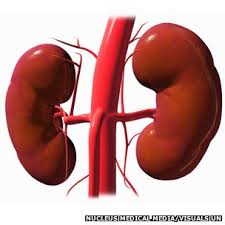 Why a kidney alert for caregivers to older loved ones? Because nearly half of adults over the age of 70 in America may have chronic kidney disease and many of them may not even know it. That means that for those of you reading this who have an older loved one, about half of you should be paying attention to your older loved one’s risk factors for chronic kidney disease.
Why a kidney alert for caregivers to older loved ones? Because nearly half of adults over the age of 70 in America may have chronic kidney disease and many of them may not even know it. That means that for those of you reading this who have an older loved one, about half of you should be paying attention to your older loved one’s risk factors for chronic kidney disease.
As a geriatric care manager for caregivers and their older loved ones we often get the call only after a crisis has occurred, but chronic kidney disease is one of those silent crises affecting as many as half of our client caregivers’ loved ones. Here are the risk factors you should be looking for if you are a caregiver who wants to avoid the crisis in the kidneys:
- Does your older loved one have high blood pressure? We tend to think of hypertension as a condition that affects the heart and the circulatory system, and it does. But it also affects the kidneys’ ability to filter the fluids in your loved one’s body. If kidneys are impaired, all the other major organs of the body are compromised.
- Does your older loved one have diabetes? If the diabetes or even prediabetes is not well-managed by diet or insulin, the kidneys pay the price. Those extra glucose molecules that stick to the red cells begin to gum up the kidneys, and that again puts everything else at risk.
- Does your older loved one smoke? We all have heard about how smoking is bad for a person’s heart and lungs, but a lifetime of smoking also compromises the kidneys. It does this, because the smoking raises blood pressure, and as I said, high blood pressure will compromise the kidneys’ ability to filter fluids.
- Does your older loved one have a weight issue. It’s very simple. Extra pounds translate into elevated blood pressure, and you can see where that takes your loved one.
- How old is your older loved one? Birthdays are not exactly the problem that can result in kidney compromise, but a lifetime of exposure to any of the risk factors I have highlighted will harm the kidneys’ function.
As a caregiver, you should help your older loved one also appreciate that kidneys do more than just filter the fluids we consume each day. They clean the blood and help to regulate blood pressure. The kidneys also help in regulating the calcium that is available to your older loved one’s bones which can be why some people develop kidney stones (which are calcium oxalate).
So, all of this is to help show that geriatric care managers also help families use nutrition to improve the health of their older loved ones which translates into not only increased quantity of life, but also enhanced quality of life.
Charlotte Bishop is a Geriatric Care Manager and founder of Creative Care Management, certified professionals who are geriatric advocates, resources, counselors and friends to older adults and their families in metropolitan Chicago. Please email your questions to info@cr eativecaremanagement.com.



